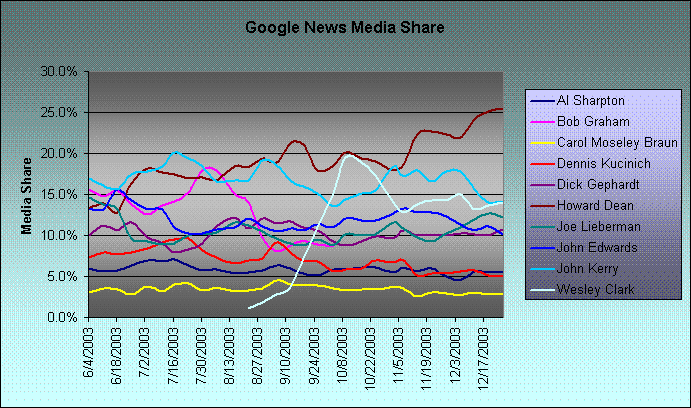Danger Howard Dean! Danger! Danger!
Dean must tread carefully when making comments like this:
The Monitor asked: Where should Osama bin Laden be tried if he's caught? Dean said he didn't think it made any difference, and if he were president he would consult with his lawyers for advice on the subject.
But wouldn't most Americans feel strongly that bin Laden should be tried in America - and put to death?
"I've resisted pronouncing a sentence before guilt is found," Dean said. "I still have this old-fashioned notion that even with people like Osama, who is very likely to be found guilty, we should do our best not to, in positions of executive power, not to prejudge jury trials. So I'm sure that is the correct sentiment of most Americans, but I do think if you're running for president, or if you are president, it's best to say that the full range of penalties should be available. But it's not so great to prejudge the judicial system."
If Dean isn't careful he risks falling into the Dukakis trap. Dukakis got ripped in
'88 because he gave a legalistically correct but seemingly unfeeling answer to the question of how he would react if his wife was raped and murdered. The problem with Dukakis' response was not that it was incorrect on the merits but that it gave the impression that Dukakis didn't really care if his wife was attacked.
Similarly, Dean runs the risk of giving people the impression that he doesn't feel in his gut the tragedy of
the 3000 deaths on 9/11. Bush, for all of his failings, understands that the American people
get off on having a leader that expresses visceral outrage when an injustice is done.
The proper response to a question like this is to always lead with that visceral
outrage ("I'd like to string him up by his nuts!") but then follow-up with the
statesmanlike response ("But doing that without due-process would make us no better than him.")
The people need to feel that their leaders will jump into the breech at a moments notice and not waste time quibbling over the niceties of how
best to respond. But they also want to believe that the way their leaders will respond
in a way that is commensurate with American principles of justice and fair play. Bush is superb at the former but a "miserable failure" at the latter.
Now, as much as people may cringe at his off-the-cuff comments, it is the comments he makes in his more thoughtful moments (such as this) that have a greater potential to screw him up. Dean does as well at the visceral response as any Dem alive today and he should stick with that. Leave the thoughtful exposition to advisors and spokespeople.







